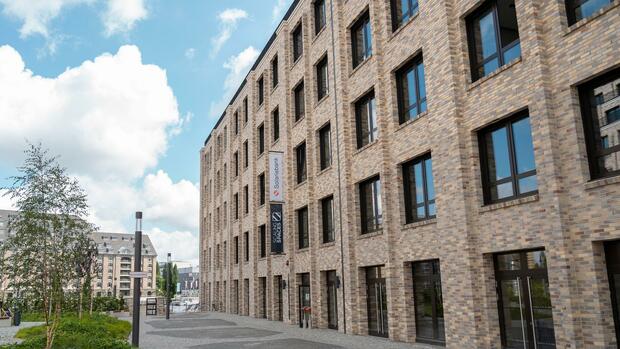The fintech is about to launch a new round of financing.
(Photo: Solarisbank)
Frankfurt Solaris from Berlin intends to complete a round of financing shortly and collect an amount in the mid double-digit millions – around 50 to 60 million euros – from existing investors. The rating of the fintech should remain stable. The Handelsblatt learned this from financial circles.
Solaris is currently in talks with investors and wants to complete another round of financing “soon”, a spokesman said. “We remain true to our principle of not raising more capital than we need. Our goal is to put Solaris in a more comfortable position in terms of regulatory requirements and further growth.”
Most recently, Solaris collected 40 million euros from existing investors in the summer of last year and was able to increase the valuation to 1.6 billion euros. Past venture capitalists include BBVA, HV Capital, Lakestar and Finleap.
Solaris enables other start-ups to use the institute’s banking license and do their first business with it. The fintech also offers banking services to established companies, for example issuing credit cards.
With the round of financing, Solaris is in line with the trend. German fintechs have once again attracted increasing interest from venture capitalists this year. From January to March, venture capital investors (VC investors) invested a total of 235 million euros in 21 financing rounds in local financial start-ups, as figures from the analysis company Barkow Consulting show. In the fourth quarter of 2022 there were only six financing rounds with a total volume of 80 million euros.
Special rights for investors
However, the small financing rounds by Solaris and other fintechs also show that the tide has turned. While start-ups were showered with money in 2021, they now have to fight for every euro and make major concessions on the terms.
>> Read here: German fintechs are increasingly attracting the interest of venture capitalists
Young growth companies fear so-called downrounds, in which their company valuations fall. This danger is particularly acute when new investors are brought on board or a large amount of venture capital is to be raised.
While it is of central importance for new investors not to enter at an inflated price, from the point of view of existing investors it can make sense to give fresh money on the basis of the existing valuation and thus avoid a write-down.
However, according to financial circles, investors allow themselves to be granted concessions in such cases: This often involves special rights in the event that a company is sold or goes public – so-called liquidation preferences, which secure them a multiple of their investment as a minimum profit. This also means that other investors will only be served later in the event of a resale. If the proceeds from such a deal are not sufficient, the founders or employees will get nothing. Such clauses are currently not uncommon.
According to financial circles, the insurance start-up Ottonova granted investors a quadruple liquidation preference in its last financing round. Solaris also has a liquidation preference, an insider said.
On the way to profitability
The round of financing is particularly important for Solaris, as the company has secured a large deal in 2022 that requires equity to complete. From the second half of this year, the Berliners will take care of around 1.3 million credit cards issued by the ADAC. In order to continue to meet the regulatory requirements in the future and to be able to take on more partners, Solaris now needs the money, according to financial circles.
Solaris needs additional equity for the ADAC credit card business
(Photo: dpa)
In 2021, the annual loss before taxes for the Solaris Group was 41.3 million euros. The figures for the past financial year are not yet known. 2023 year, Solaris plans to break into the black. “We want to demonstrate profitable growth this year and be in the black for the first time for the year as a whole,” said Solaris CEO Carsten Höltkemeyer in an interview with the Handelsblatt in January.
According to some industry experts, Solaris is struggling with the consequences of previous business decisions. In the early days, Solaris offered its services on very favorable terms and concluded long-term contracts, which put pressure on the margin.
According to the spokesman, however, the company is “on a very good path to becoming consistently profitable”. The first quarter went according to plan. “We are also planning a positive net margin this year,” said the spokesman.
Solaris continues to have trouble with the Bafin. During an audit in 2020, the financial supervisory authority found some serious deficiencies in Solaris. She then sent a special auditor to the bank and also increased the capital requirements.
At the beginning of January, Bafin then tightened control of the prominent Berlin fintech. Since then, the company has had to get the green light from Bafin before it can take on new customers.
More: Financial regulator restricts new business from fintech Solaris
